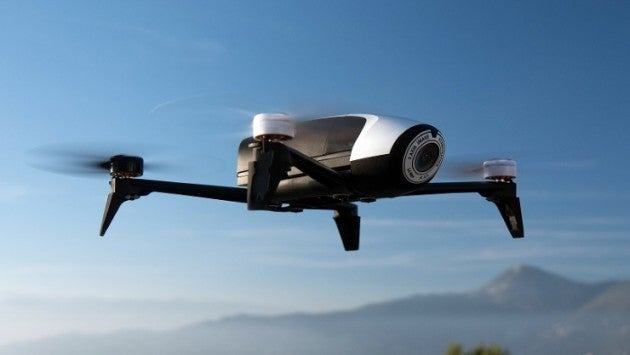The Government is spending millions on drone security: here’s what on

The UK Government is spending two million pounds on drone security technologies, according to new pledges.
The three-day Gatwick airport drone fiasco that dogged UK air travel last Christmas has clearly inspired a level of drone-related-worry in UK policy makers. Now, they’ve pledged a two million spend across 18 projects to stop it happening again. (Via Zero Day Net)
This week The Defence and Security Accelerator (DASA) revealed 18 competition winners who will receive the funding and the details of the drone security measures they want to develop.
Related: You need to register your drone and pass a theory test
DASA’s program is a new innovation from the Ministry of Defence, intended to make the nation more alert to the threat of drones and prepared to deal with any issues, should it arise.
Back in April, the MOD published documents requesting help from the private sector and seeking innovations to counter drone usage. The document outlines some of the potential risks of the growing availability and popularity of drones.
They wrote: “This Defence and Security Accelerator (DASA) competition is seeking proposals that can develop the technology needed to counter Unmanned Air Systems (C-UAS) and demonstrate how these can be integrated together to form a capable system.
“Small commercially available UAS have already been used as weapons in overseas theatres and have allowed forces hostile to UK interests to deploy cheap, pervasive, low observable surveillance capability across the battlefield. This asymmetric change bypasses traditional air defence and ground security measures.”
If you want the lowdown on the competition winners, you can see the MOD’s list below…
The 18 projects funded around £100,000 each are:
- Airspeed Electronics Ltd – to develop an artificial intelligence detection system which uses acoustic sensors.
- Animal Dynamics – to develop UAS swarm system to detect and neutralise.Unmanned Air Vehicles (UAV) by employing peregrine falcon attack strategies.
- Autonomous Devices Limited – to develop interception technology.
- BAE Systems Applied Intelligence Ltd – to develop electromagnetic defeat of UAS.
- BAE Systems Applied Intelligence Ltd – to develop passive radar for detection of UAVs.
- Cubica Technology Ltd – to develop an automatic recognition and targeting system of UAVs from large distances.
- MBDA UK Ltd – to demonstrate an integrated system to detect, track and intercept hostile drones.
- Northrop Grumman – to develop UAS defeat using cyber and sensor vulnerabilities.
- Northumbria University – to develop anti-swarm drone technology.
- PA Consulting – to develop a detection system against cellular controlled UAS.
- Plextek Services Limited – to develop detection and signal jamming capability for UAS.
- Plextek Services Limited – to develop miniature Counter-UAS radar.
- QinetiQ – to develop a drone tracking system in complex environments.
- QinetiQ – to develop a ‘hard kill’ for disrupting the UAV’s on board electronics.
- RiskAware Ltd – to develop an automated drone identification and target tracking system.
- Thales UK – to develop a machine learning for Counter-UAS radar.
- University College London – to develop signal processing and machine.learning algorithms to identify drones in areas highly populated by birds.
- An additional proposal, subject to contract.
Related: Best Drones 2019


